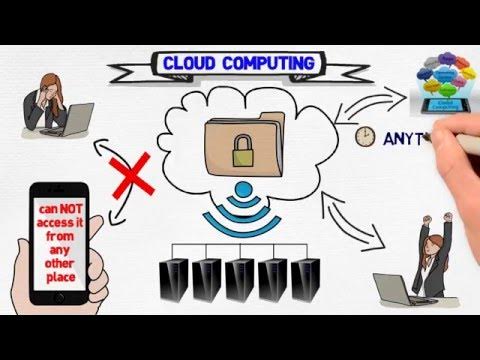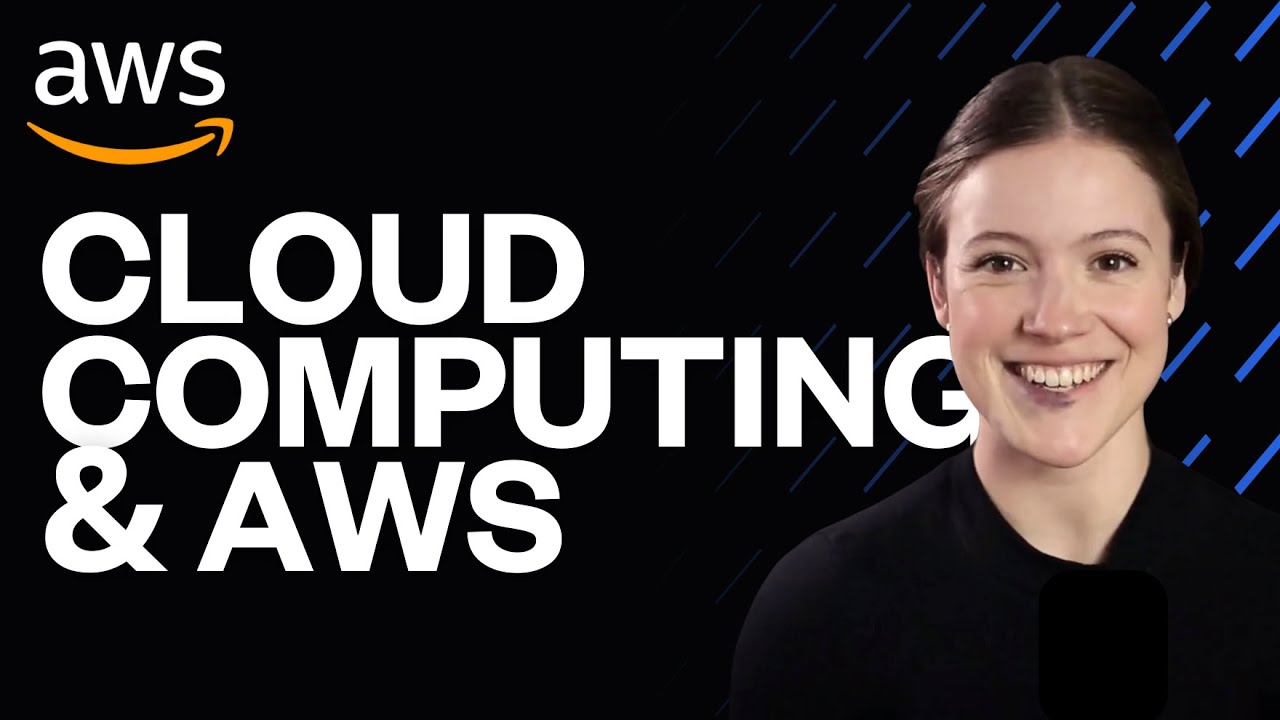Cloud Computing Explained
Summary
TLDRCloud computing offers a flexible, scalable solution for businesses needing computing power. The script explains that instead of investing in physical servers that may sit idle, companies can access cloud servers on-demand, scaling up or down instantly with demand. This not only saves money by paying only for what is used but also allows businesses to focus on growth rather than hardware management. The analogy of cloud computing to utilities like electricity or a taxi service highlights its ease of use and cost-effectiveness.
Takeaways
- 🌟 Cloud computing is a growing trend that provides scalable, on-demand computing resources over the internet.
- 💻 The infrastructure layer of cloud computing is the foundation, where cloud hosting resides and is the starting point for building services.
- 🔄 Traditional hosting involves setting up and maintaining servers, which can be costly and time-consuming, especially when demand increases.
- 📈 Cloud computing offers the advantage of instant scalability; you can scale up or down based on demand without investing in additional hardware.
- 🚀 With cloud computing, you pay for what you use, similar to a utility like electricity or gas, which can save businesses money.
- 🔑 Remote access to cloud servers allows you to manage and control your computing resources without physically touching the hardware.
- 🔒 The focus with cloud computing is on the service and its reliability, not on the physical location of the servers or hardware.
- 🌱 Scalability is a key benefit of cloud hosting, making it easy to adjust resources to match current business needs.
- ⏱ Instant access to computing power is available in the cloud, which can be turned on or off as needed, providing flexibility.
- 💰 Cost savings come from only paying for the computing resources used, eliminating the expense of maintaining idle equipment.
- 🛫 Cloud hosting frees up time and resources for businesses to focus on growth and product development rather than managing hardware.
Q & A
What is cloud computing?
-Cloud computing is a technology that allows you to access and use computing power, storage, and services over the internet, rather than relying on local servers or personal devices.
What are the three layers of cloud computing mentioned in the script?
-The three layers of cloud computing are infrastructure, platform, and software. The script specifically mentions the infrastructure layer as the foundation where cloud hosting takes place.
How does cloud hosting differ from traditional hosting?
-Traditional hosting involves setting up and maintaining physical servers, which can be time-consuming and costly. Cloud hosting, on the other hand, allows you to access computing power on-demand, scaling up or down instantly as needed, and you only pay for what you use.
What are the benefits of using cloud hosting for a website?
-The benefits of using cloud hosting for a website include scalability, instant availability of computing power, and cost savings. It allows businesses to quickly respond to increased demand without investing in physical servers.
Why is cloud hosting considered more cost-effective?
-Cloud hosting is more cost-effective because you only pay for the computing power you use. There’s no need to invest in or maintain physical servers that may sit idle, saving money on both hardware and operational costs.
How does cloud computing help with scalability?
-Cloud computing helps with scalability by allowing you to instantly increase or decrease the number of servers or computing power based on your current needs. This flexibility ensures that your service can handle varying levels of demand efficiently.
Can you physically interact with cloud servers?
-No, you cannot physically interact with cloud servers. You access and control them remotely via your personal computer, allowing you to manage your website, software, or other services without needing to touch the physical hardware.
How is cloud computing similar to using utilities like electricity or taxis?
-Cloud computing is similar to utilities like electricity or taxis because you pay only for what you use. Just as you pay for electricity based on your consumption or for a taxi based on the distance traveled, with cloud computing, you pay for the computing power you actually use.
Why is cloud hosting becoming increasingly popular?
-Cloud hosting is becoming increasingly popular due to its scalability, instant availability, and cost-effectiveness. Businesses can quickly adapt to changing demands without the overhead of managing physical servers, leading to more efficient operations.
What is the key takeaway from the script about cloud computing?
-The key takeaway is that cloud computing allows businesses to focus on building and improving their services rather than worrying about hardware. It provides scalable, on-demand computing power that saves time and money, making it an attractive option for modern businesses.
Outlines

Dieser Bereich ist nur für Premium-Benutzer verfügbar. Bitte führen Sie ein Upgrade durch, um auf diesen Abschnitt zuzugreifen.
Upgrade durchführenMindmap

Dieser Bereich ist nur für Premium-Benutzer verfügbar. Bitte führen Sie ein Upgrade durch, um auf diesen Abschnitt zuzugreifen.
Upgrade durchführenKeywords

Dieser Bereich ist nur für Premium-Benutzer verfügbar. Bitte führen Sie ein Upgrade durch, um auf diesen Abschnitt zuzugreifen.
Upgrade durchführenHighlights

Dieser Bereich ist nur für Premium-Benutzer verfügbar. Bitte führen Sie ein Upgrade durch, um auf diesen Abschnitt zuzugreifen.
Upgrade durchführenTranscripts

Dieser Bereich ist nur für Premium-Benutzer verfügbar. Bitte führen Sie ein Upgrade durch, um auf diesen Abschnitt zuzugreifen.
Upgrade durchführenWeitere ähnliche Videos ansehen

What is Cloud Computing ? Cloud Computing Definition & Advantages by CloudSpace USA ( Houston, TX )

What is Cloud Computing? | Amazon Web Services

Cloud Computing and AWS Explained in 5 Minutes

Módulo 8 - Cloud: Enabler of new techs

What is Cloud ERP (Computing Software)?

1 3 3 Blockchain and Analytics in the Cloud
5.0 / 5 (0 votes)
